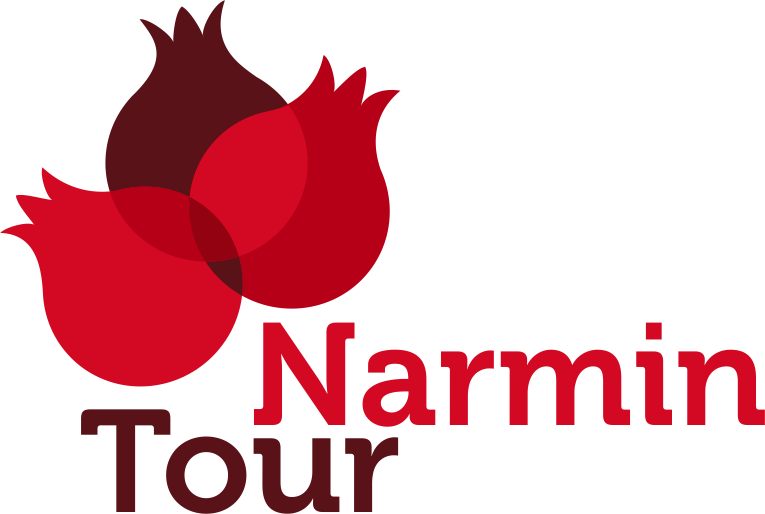Visa, Permits and Recommendations.
During the whole period of your stay in Azerbaijan, you must always have with you an identity card or its copy with the visa permitting to enter the country (for countries whose citizens are required to have a visa for Azerbaijan). All foreigners who stay in Azerbaijan for over 10 days must register at the State Migration Service of Azerbaijan within 9 days after their arrival. In order to do it a tourist must deliver a completed registration form, a copy of the passport and a copy of the visa (for countries whose citizens are required to have a visa for Azerbaijan) to the State Migration Service, personally or via e-mail. Hotels assist their guests in going through this procedure, but tourists staying at private homes or unlicensed hotels must register for themselves. The registration is free, but the person that does not obtain it may be fined 300-400 manat.
Currency
The national currency - manat (AZN). US$1 = 1.70 AZN (At the exchange rate of the National Bank of Azerbaijan for 16.09.2017). Exchange of any currency can be undertaken in banks and many exchange offices. Banks are usually open from 10 am to 5 pm. The local currency can be bought at banks, hotels and numerous currency exchange offices. Exchange offices often operate for 24 hours (in Baku, large cities and at airports). If you exchange a sum of over $500, you are to show your identity card. Automated teller machines (ATM, cash dispensers) can be found only in large cities. In the centre of Baku, there are plenty of them, with at least one ATM in every regional centre, even the smallest one. The currency exchange rate at the National Bank may differ from those at private banks. Banks do not operate on official holidays and on days off; in this case you can only exchange money at the Respublika Bank, which is open after normal business hours.
Safety
Azerbaijan is the most stable and secure country in the region. Crime is almost non-existent; cleanliness and order prevail in the streets. Azerbaijanis are a very law-abiding and friendly people, with respect for other people's traditions and customs. Probably for this reason, tourists feel at home in our country and come back here again.
Issues concerning Armenia and Nagorno-Karabakh
Nagorno-Karabakh is an integral part of Azerbaijan which is currently occupied by Armenian troops. Consequently, Azerbaijanis are sensitive to tourists visiting Nagorno-Karabakh through Armenia. If the traveler has visited Nagorno-Karabakh and his passport has an endorsement indicating such a visit, then he/she will be denied a visa and entry to Azerbaijan on the grounds of violating Azerbaijani law and illegally entering the territory of our country. This issue should be approached seriously and with understanding. In addition, Azerbaijan cannot ensure the safety of tourists travelling in the occupied territories. Mind that even if a tourist has the visa for Azerbaijan they may be denied permission to enter the country, if they have a record in their passport that they have visited Nagorno-Karabakh, an illegally occupied territory of Azerbaijan.
Prices
Everywhere, especially in private stores and markets, you should bargain - with a certain ability to knock the price down twice as easily. Sellers in most cases make concessions. Credit cards are accepted for payment in almost all more or less large metropolitan shops, hotels and banks. The use of credit cards in the province is also becoming increasingly common. Most shops and supermarkets are open daily. The beginning of the working day is at 8-9 o'clock, the objects of trade close at 21-23 o'clock, restaurants and bars - much later. Remember to bargain, particularly at markets and in private shops - you can easily reduce the price 2 times!
Communications, Cellular communications and Internet
Telephone communication is no problem. Hotels have international direct dialing (IDD) wi-fi and fax facilities. Public payphones accept coins. Cellular communication GSM 900 is developing very rapidly across the country. In Azerbaijan there are three mobile operators - Azercell, Bakcell and Azerfon (Nar Mobile). Roaming is available to subscribers of 300 operators around the world. The mobile communication network covers almost the entire country (except for the occupied territories). To exit from a fixed unit to the cellular network the code (0) 50 (0) 51 {Azercell, GSM-code 40001, the seven-digit number} (0) 55 (Bakcell, GSM-code 40002, the seven-digit number), (0) 70 and (0) 77 (Azerfon, seven-digit number) is dialed. 3G services are provided not only at all the stations of the Baku Metro, but also in the tunnels. Azerfon is the first of the three mobile operators operating in Azerbaijan to be licensed to use 3G network, which was launched in December 2009. But progress does not stand still and mobile operator Azercell, in May 2012, launched its high-speed 4G network based on LTE technology. For now, all mobile operators in Baku have 4G network covering Baku & suburbs. The Internet is also developing rapidly and there is a network of internet cafes in Baku and regional towns. These facilities are especially popular among young people playing computer games, so they can be noisy and rather smoky. Access prices is mostly 1 manat per hour, depending on location.
Health
Emergency medical care is usually provided free of charge. An ambulance can be called twenty-fours a day on (012) 103. There are also private clinics and paid medical services where doctors speak foreign languages. In pharmacies, many of which are open around the clock, there is a large selection of over-the-counter medicines and medical supplies.
Climate
The territory of Azerbaijan features 9 climatic zones of the world’s total of 11 zones - from the subtropics to the Alpine meadows. The country is situated at the junction of moderate and subtropical zones, so the climate is varied. The average temperature in January varies from 3 to 10 degrees Celsius and reaches 26 to 35 degrees Celsius in July-August. Azerbaijan enjoys over 2900 hours of sunshine per year and experiences low levels of precipitation.
Language
The official language is Azerbaijani. In addition, much of the population speaks Russian to some degree and many understand and speak Turkish & English. In hotels, bars and offices, English is widely used.
Clothing
From May to September, residents of coastal regions wear light summer clothes. However, in winter – hats, padded coats and jackets are often needed.
Alcoholic drinks
All restaurants and bars serve alcohol. In addition, anyone over the age of 18 can buy alcohol without restrictions in many stores.
Tips
Many of the large restaurants of Baku indicate in their menus the sum of tips, which is usually from 5% to 10%. If a restaurant does not provide it, you may add 10% to the bill sum (if you do it in the beginning you will be served more quickly). Many of the cafes leave it up to their clients to decide whether or not they should tip. If you really liked the service, it would be good if you thank the waiter by tipping them 10% of the sum indicated in the bill. A porter at the airport or hotel may be tipped 5 to 10 manat, depending on the size of your luggage. Taxi drivers are not tipped, usually; you should negotiate the fare in advance. You should keep in mind that taxi drivers do not accept foreign money.
Electricity
Standards B and F sockets with a voltage of 220 V and a frequency of 50 Hz are used throughout Azerbaijan.
Railways of Azerbaijan
Rather well developed and passenger traffic is carried out on almost all available lines:
Baku - Yevlakh - Ganja - Boyuk-Kasik (hereinafter - the border with Georgia)
Baku - Yevlakh - Sheki - Belokany (hereinafter - the border with Georgia)
Baku - Lankaran - Astara (hereinafter - the border with Iran)
Baku - Khachmas - Yalama (hereinafter - the border with Russia)
Sleeping carriages are available on the trains to Bowk-Kasik and Belokany. The trains to Yalamu leave from Keshlya station, away from the city center, not far from the station. Metro Bakmil. The fare is very low and amounts (in a compartment car) from $ 7 from Baku to Ganja to $ 10 from Baku to Belokany.
Currently in Baku there are about 10 companies representing rental services, such as: Avis, Budget, Europcar and a number of local firms. The average cost per day rental of the cheapest model is from $ 60.
Souvenirs from Azerbaijan
Azerbaijan is famous for its unique traditional crafts. Carpets, original carpet bags and special mats for teapots and cups are considered to be Azerbaijan’s main souvenirs. Antique carpets of high value may not be taken out of the country. However, you may purchase a new carpet with an unthinkably beautiful decorative pattern. You can consult your guide for details before you buy it. Pear-shaped glasses armud (made of crystal glass and painted with coloured ornamental patterns) are also perfect souvenirs. In these glasses tea remains hot for a long time. Rainier cherry jam may also be a wonderful present. You can bring an original tablecloth with a buta - the traditional Azerbaijani pattern, and a couple of copper kitchen utensils. The tablecloths are made of thick fabric and decorated with gold embroidery. They are beautiful, practical and washable. Copper utensils include wine jugs, chased plates, vases and samovars, all of which can be used both as elements of décor and as practical things. Azerbaijan’s souvenir market abounds in jewellery, ceramics, fretted wooden articles, pieces of traditional costume, items of local silk, batiks and, certainly, wines.

 English
English
 Russian
Russian German
German Italian
Italian Polish
Polish